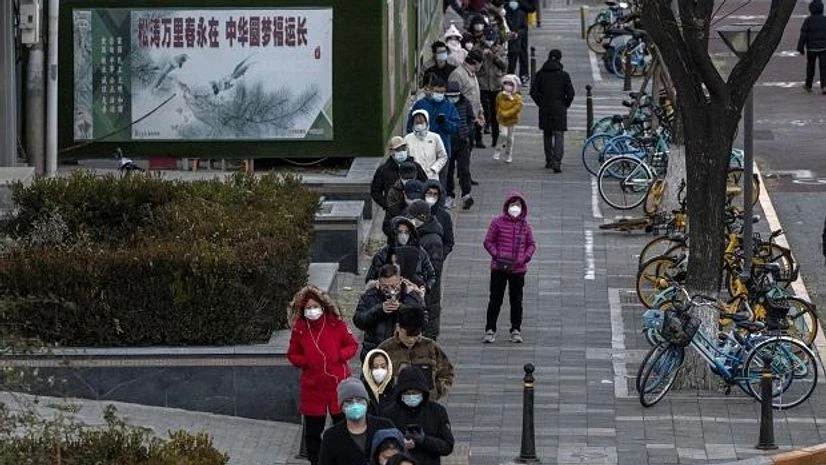For the first time in about two years, China's capital city Beijing relaxed its norms for coronavirus test requirements on Tuesday after unprecedented public protests against President Xi Jinping's stringent zero-Covid policy rocked the country.
As per the new announcement, negative nucleic acid test results are no longer required to enter shopping malls, supermarkets, commercial buildings and residential compounds.
However, Beijing residents will still require a negative Covid-19 test taken within 48 hours to enter restaurants, schools, bars, internet cafes, indoor gaming stadiums, nursing homes, welfare facilities, hospitals and medical institutions.
The announcement was made ahead of the memorial meeting held here by the ruling Communist Party of China (CPC) for former President of the country Jiang Zemin who passed away on November 30.
Beijing continues to report a high number of Covid-19 cases. On Monday, the city reported 2,260 Covid infections.
Also Read
The Chinese mainland on Monday reported 4,988 locally transmitted confirmed Covid-19 cases and 22,859 local asymptomatic infections, China's National Health Commission said on Tuesday.
Many Chinese cities, including Beijing and Shanghai, witnessed public protests against the government's zero-Covid policy leading to periodic lockdowns of the cities and the apartment complexes, confining people indoors for days on end.
Last week, China said it will take steps to minimise the impact of its draconian coronavirus lockdowns, amidst the public protests against the zero-Covid policy that evoked strong support from the UN, the US and other nations.
China's zero-Covid policy involves mass lockdowns, constant testing and quarantines even for people who are not infected.
China is the only major country still trying to stamp out transmission while other nations have relaxed restrictions and try to live with the coronavirus that has killed at least 6.6 million people and infected almost 650 million.
(Only the headline and picture of this report may have been reworked by the Business Standard staff; the rest of the content is auto-generated from a syndicated feed.)

)
